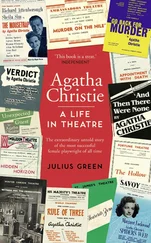Alice Green - Town Life in the Fifteenth Century, Volume 2
Здесь есть возможность читать онлайн «Alice Green - Town Life in the Fifteenth Century, Volume 2» — ознакомительный отрывок электронной книги совершенно бесплатно, а после прочтения отрывка купить полную версию. В некоторых случаях можно слушать аудио, скачать через торрент в формате fb2 и присутствует краткое содержание. Жанр: literature_19, foreign_antique, foreign_prose, Историческая проза, на английском языке. Описание произведения, (предисловие) а так же отзывы посетителей доступны на портале библиотеки ЛибКат.
- Название:Town Life in the Fifteenth Century, Volume 2
- Автор:
- Жанр:
- Год:неизвестен
- ISBN:нет данных
- Рейтинг книги:5 / 5. Голосов: 1
-
Избранное:Добавить в избранное
- Отзывы:
-
Ваша оценка:
- 100
- 1
- 2
- 3
- 4
- 5
Town Life in the Fifteenth Century, Volume 2: краткое содержание, описание и аннотация
Предлагаем к чтению аннотацию, описание, краткое содержание или предисловие (зависит от того, что написал сам автор книги «Town Life in the Fifteenth Century, Volume 2»). Если вы не нашли необходимую информацию о книге — напишите в комментариях, мы постараемся отыскать её.
Town Life in the Fifteenth Century, Volume 2 — читать онлайн ознакомительный отрывок
Ниже представлен текст книги, разбитый по страницам. Система сохранения места последней прочитанной страницы, позволяет с удобством читать онлайн бесплатно книгу «Town Life in the Fifteenth Century, Volume 2», без необходимости каждый раз заново искать на чём Вы остановились. Поставьте закладку, и сможете в любой момент перейти на страницу, на которой закончили чтение.
Интервал:
Закладка:
Nor was this the condition of the smaller towns only. In Nottingham, a thriving and prosperous borough, we read in the same way of streets blocked with piles of cinders cast out smoking hot from the bell-foundry or the iron workshops, or with heaps of corn which the householders winnowed, or as they said “windowed,” by the simple method of throwing it from an upper window or door into the street that the wind might carry away the chaff. [61] Nottingham Records, iv. 190.
In the yet wealthier manufacturing city of Norwich the market place was not yet paved in 1507, but a judicious order was issued that no one should dig holes in it to get sand without the mayor’s licence. [62] Blomefield, iii. 183.
The very attempt to get access to a town was often not wholly free from peril. In 1499 a glover from Leighton Buzzard travelled with his wares to Aylesbury for the market before Christmas Day. It happened that an Aylesbury miller, Richard Boose, finding that his mill needed repairs, sent a couple of servants to dig clay “called Ramming clay” for him on the highway, and was in no way dismayed because the digging of this clay made a great pit in the middle of the road ten feet wide, eight feet broad, and eight feet deep, which was quickly filled with water by the winter rains. But the unhappy glover, making his way from the town in the dusk, with his horse laden with paniers full of gloves, straightway fell into the pit, and man and horse were drowned. The miller was charged with his death, but was acquitted by the court on the ground that he had had no malicious intent, and had only dug the pit to repair his mill, and because he really did not know of any other place to get the kind of clay he wanted save the highroad. [63] Parker’s Manor of Aylesbury, 14-15.
All this heritage of squalor and rough disorder however was no longer accepted without protest. Old abuses were brought to light and denounced. [64] In 1388 town officers were ordered to clean their towns of all that could corrupt and infect the air and bring disease. 12 Richard II. cap. 13. The shambles were commonly at the very corner of the Tol-booth or Moot Hall. Hewitson’s Hist. of Preston, 36. See Shillingford’s Letters, 89. But in 1487 the Londoners after sixteen years continual remonstrance obtained a statute that no butcher was to kill any beast within the walls of the town, and that the same law was to be observed in all walled towns of England except Berwick and Carlisle. 4 Henry VII. cap. 3.
Towns were swept and garnished, stately market crosses set up, and new Guild-halls everywhere built with shops and stalls and storage rooms for the traders. A new interest was awakened in the state of streets [65] A grant for paving was given to Liverpool in 1329. Picton’s Mun. Rec. of Liverpool, i. 10. Southampton appointed in 1482 a “pavyour” who should dwell in a house of the town at a price of 13 s. 4 d. rent free “and to have yearly a gown.” Davies, 119, 120. Nottingham decided in 1501 to have a town paviour at a salary of 33 s. 4 d. and a gown; and gave order that the chamberlains were to find stones and sand. Nottingham Records, iii. 309. See vol. i. p. 18, note.
and lanes and central squares when waggons and pack horses began to struggle through the mire with their loads on market day. And as travellers multiplied – busy men intent on bargains, traders flocking to buy and sell, mayors and clerks of distant boroughs come to negociate a commercial treaty, men of law having the conduct of a new charter, common earners – all travellers who no longer cared (and some of them for very obvious reasons) to depend on the hospitality of monasteries, the towns with one accord began to provide inns where, to the greater profit of the community, such men might turn for shelter; and the more luxurious among them might discover good cheer which demanded a grateful entry – “paid for our bed there, and it was well worth it, witness, a feather bed 1 d. ” [66] Hist. MSS. Com. v. 493. In Canterbury, where the inns were very numerous, there was a law that no hosteler should “disturb no manner of strange man coming to the city for to take his inn, but it shall be lawful to take his inn at his own lust without disturbance of any hosteler.” Hist. MSS. Com. ix. 172.
Everywhere a new order reigned under the busy rule of the municipal officers, as they leased out the market stalls and sheds, [67] Married women might become merchants on their own account and carry on trade, hold property and answer in all matters of business before the law as independent traders. (Eng. Gilds, 382. Mun. Records, Carlisle, ed. Ferguson and Nansen, 79. Hist. MSS. Com. ix. 174.) Women might become members of the Merchant Gild at Totnes by inheritance, by purchase, or by gift. (Hist. MSS. Com. iii. 342-3.) Their property was carefully guarded, and no tenement held by the wife’s right could be alienated or burdened with a rent unless the wife had given her free consent openly in the Mayor’s Court. (Nott. Records, i. 83, 265.)
appointed the corresponding pews in the church, allotted storage rooms in the Guildhall, issued licenses to alien traders, and controlled the wayward will of the sellers by regulating their prices and their profits. Goods landed at the wharves of a seaport were delivered up to the public porters and measurers of the Strand [68] Hist. MSS. Com. v. 540. Boys’ Sandwich, 498.
employed by the town to unload vessels with pulleys and ropes supplied at the common expense, and to carry them to the appointed place for toll or for inspection; and the town brokers – public officers sworn to make no private profit while they held their posts – conducted bargains in the name of the whole community, [69] The brokers were paid by a fixed tax on the merchants’ goods which passed through their hands. Boys’ Sandwich, 497, 506-7.
freighted vessels, and measured cargoes of corn or canvas or cloth. Before the mayor the endless officials of the market were sworn – the clerk of the market who had to search and survey all victuals, the sergeant who carried the toll-box on market days after the bailiffs, [70] Hist. Preston Guild, 16.
the “leave-lookers,” the “decennaries,” the “prud’hommes,” [71] Blomefield, iii. 168. Gross, ii. 43, 175, 220. Nott. Records, i. 445-6, 159, 201; ii. 47, 241. See also the serjeant-at-mace in Sandwich (Boys, 504-5), at Nottingham (Rec. iii. 73).
the butchers chosen to oversee the meat market, the men appointed to control the sale of fish and poultry, the common weigher, and so on through the long and various list of officials.
A vast system of ingenious and elaborate regulations [72] For typical market rules see Reading, Gross, ii. 204-7. Southampton, Ibid. 220.
marked the long effort of the townspeople to carry out in their new markets the apparently simple end which lay at the heart of the democracy, that food and necessaries of life both good and cheap should be within the reach of every man. According to the theory which still held its ground in the sixteenth century that “victual being a necessary sustenance for the body should not be esteemed at the seller’s liberty,” [73] See Schanz, i. 621-2.
a fixed price was set on all provisions. Hence the Assize of Bread [74] The loaf was changed in weight not in price with the price of corn; the lowest rate conceived by ancient writers was 12 d. a quarter of corn; the unit of bread was 1/4 d. loaf. (Hist. MSS. Com. ix. 175.) Twelve kinds are mentioned in the fifteenth century, but in the Assize only three sorts were recognized – Wastel or white or well-baked bread; Coket (seconds); Simnel, twice baked bread, used only in Lent. (English Guilds, 102. Boys’ Sandwich, 543.)
(apparently quite neglected by the feudal lords [75] Manorial Pleas, Selden Soc. xxxviii. For control of bread and beer at the time of Domesday see Rep. on Markets, 18. In Norwich supervisors of bread were appointed before 1340. The system seems to have worked well, for no troubles as to the assize of bread are recorded, as in other towns. Leet. Jur. of Norwich, Selden Soc. xxxvi.
) and the Assizes of Beer and of Wine were secured by the towns, whether as a part of their market rights or as an independent privilege. [76] Rep. on Markets, 25.
Victuallers were closely watched lest in selling meat, eggs, butter, or oatmeal they should take “excess lucre upon them, selling that is to say more than 1 d. in the shilling;” [77] Hist. MSS. Com. ix. 288. In certain departments, as in the fixing of the prices of bread and ale, in measures, in various rules about buying and selling, the towns simply carried out laws made by the central government; while in other things such as the regulation of the price of meat, poultry, fish, and wine, they were from time to time given authority to fix their own standard.
innholders were allowed a penny of gain on every bushel of corn and a half-penny on every seven pounds of hay, so that if a man could buy a bushel of corn [78] Andover, Gross, ii. 310. Cutts’ Colchester, 154-7.
for 2 s. 8 d. he was not allowed to sell it for 3 s. ; tavern-keepers might have twopence profit on a gallon of white or red wine, and on sweet wines brought by Italian merchants, fourpence; [79] In 1383 the price of unsweetened wine was practically left to the towns for about a hundred years. Schanz, i. 647. For common consumption wine was sweetened with honey and flavoured with blackberries. Archæol. Cantiana, vi. 328.
cooks must make their meat “well seasoned and wholesome, and sell it for reasonable winning, and that they reboil nor rebake no meat in hurt of the King’s people;” while fishmongers – a class most important in the mediæval world, and among whom it was impossible to prevent the growth of the middleman, were subjected to endless regulations. [80] Liber Albus, 289, 373-86, 686-91, Liber Custumarum, 117-120, 385-6. Statutes 22 Edward IV. cap. 2. Hist. MSS. Com. ix. 172.
In the unceasing effort to save themselves from dearth or from fraud the poor commons had their authorized protector in the Mayor – a protector who on entering office took oath before the community not only to obey the King but also to serve the people, and to “keep truly correction on all bakers and brewers and taverners and cooks and such like people.” No sooner was the Mayor of Bristol installed than he was bound to call all the bakers of the town to the Guild Hall, to understand from them what stuff they had of wheat, to counsel them in their buying and bargaining with the “Bagers” who brought corn to the town, and to decide on the size of the loaves. Then all the Bristol brewers were summoned before him, that he might commune with them about the cost of malt, and decree a fixed price which no brewer might evade or alter. In like manner he proceeded to set a price on wood “by his wise discretion,” and to order the hours of its sale; and he had to examine the colliers’ sacks, and to assure himself that standard measures for coal were set in the proper places of the town. Further, throughout the year it was his duty constantly to watch that his ordinances were duly observed. Occasionally his walk was extended along the river side, that he might keep an eye on the timber trade and observe whether the great wood called Berkeley wood was discharged at one quay, and the smaller faggots at another landing-place; and that he might from spring to spring watch prices, and see that there was small wood enough to supply the poor people with bundles at 1/2 d. or 1 d. kept at the “Back,” a waterside street where the merchants’ stores were piled. At divers times he went to oversee the quality of the bread and try its weight (for which perhaps, as at Sandwich, he engaged a goldsmith who was liberally paid for his experience at the scales); while at Christmas, or whenever there was holiday or a pilgrimage in the town, it was his business to make sure that there was bread enough in the shops to supply all needs. And in order to know certainly that the brewers not only made good ale for the rich but also a cheap small drink for the poor, on Wednesdays and Saturdays he was “used to walk in the mornings to the brewers’ houses, to oversee them in serving of their ale to the poor commons of the town, and that they have their true measures; and his ale-konner with him to taste and understand that the ale be good” [81] Ricart’s Kalendar, 81-84.
– a very necessary task if we accept the picture given us in Piers Ploughman of the typical beer-seller of his day —
Интервал:
Закладка:
Похожие книги на «Town Life in the Fifteenth Century, Volume 2»
Представляем Вашему вниманию похожие книги на «Town Life in the Fifteenth Century, Volume 2» списком для выбора. Мы отобрали схожую по названию и смыслу литературу в надежде предоставить читателям больше вариантов отыскать новые, интересные, ещё непрочитанные произведения.
Обсуждение, отзывы о книге «Town Life in the Fifteenth Century, Volume 2» и просто собственные мнения читателей. Оставьте ваши комментарии, напишите, что Вы думаете о произведении, его смысле или главных героях. Укажите что конкретно понравилось, а что нет, и почему Вы так считаете.












